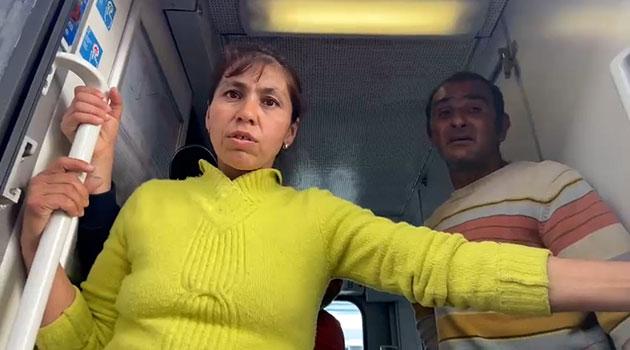Romani Ukrainian refugees refused housing and registration in Czech Republic and sent to Germany

Romani refugees from Ukraine are encountering more and more frequent problems in the Czech Republic; while the authorities, with the significant aid of nonprofit organizations, have managed to house several hundred Romani Ukrainian refugees, accommodation allegedly does not exist for some of the newer arrivals, and some Romani refugees are running into bias and discrimination. As of mid-April, housing similar to that offered to non-Romani Ukrainian refugees is practically inaccessible to Romani refugees.
The authorities are said to be recommending some Romani Ukrainian refugees leave the country altogether. “We wanted to remain here, but they told us they have no housing for us and sent us to Germany,” one Romani woman who fled Russia’s aggression with her husband and five children told news server Romea.cz.
“Our child is ill, but nobody would aid us,” she told Romea.cz from inside a train car at the Main Station in Prague. That family is not the only one.
There were about 100 Romani Ukrainian refugees at the Main Station on 13 April, mostly children and women for whom it is allegedly almost impossible to find accommodation. Martin Kavka, spokesperson for the firefighting service in Prague, claims that accommodation has been found for 300 Romani Ukrainians since the beginning of the refugee influx.
Kavka said that he believes the reason Romani Ukrainian refugees are not succeeding in finding housing now is that they want to remain together in big groups. “Romani people have requirements that are a bit specific, they want to live together in big numbers, for example, 30-50 people,” he told news server Romea.cz.
“We are doing our best to find accommodation for all, whether they be specific groups, invalids, or pet owners. We’re responding to offers that come to us from all over the country, de facto, doing our best to fill them,” the spokesperson said.
“When accommodation is already actually full and we are unable to suddenly house 30-50 people together, we have to find a substitute solution for them,” he told Romea.cz. “We have opportunities to accommodate five or six people together, it’s really in the single digits, and if they want specific housing for 50 people and we are unable to offer them that, we have to recommend a different destination where such an option exists.”
“I know there was a case of Romani people who traveled on to Germany, so it is likely that accommodation for them was found there,” Kavka told Romea.cz. However, a person familiar with the situation to whom Romea.cz promised anonymity stated the following: “I see differences in the provision of information and in the treatment of the Romani versus the non-Romani refugees.”
“They do not tell the Romani refugees that they are even able to remain in the Czech Republic, that they can apply for visas. They are instructed to go elsewhere from the start,” the anonymous whistleblower said, describing this rejection of the Romani Ukrainian refugees as a common practice, not just as isolated excesses.
The Czech Government approved its strategic priorities for addressing the war refugee influx on 13 April and has now established the function of a National Coordinator for this issue; currently, Deputy Prime Minister and Interior Minister Vít Rakušan (STAN) will be filling the role. The chapter of the strategy on Accommodation and Housing, however, does not address the situation of Romani Ukrainian refugees encountering discrimination in the area of accommodation.
